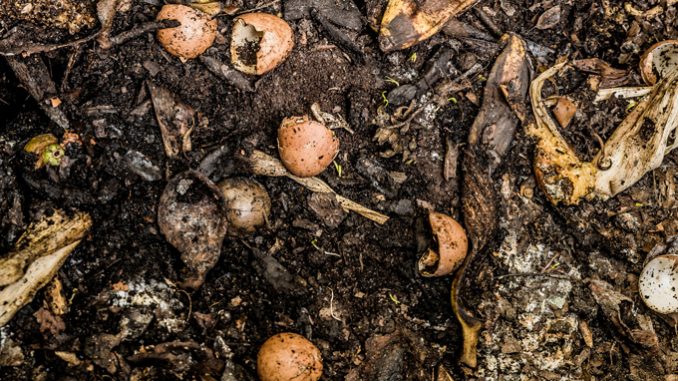
There are many reasons to regret the transfer of the Solemnity of the Ascension to the seventh Sunday of the Easter season. Among other things, the transfer shortens the Church’s time to reflect on this great feast, whose meaning has become ever more important in this cultural moment.
What does the Ascension of the Lord mean?
The Ascension means that humanity—the human nature assumed by the second Person of the Trinity at the Incarnation—has been incorporated into the life of God himself.
The Incarnation, celebrated on the Solemnity of the Annunciation, teaches us that our humanity is a worthy vessel for God’s action in history. The Ascension teaches us that human nature—glorified in what Pope Benedict XVI called the “evolutionary leap” of the Resurrection—is now fitted into the eternal communion of self-giving love and receptivity that is the triune God. And if, as the Collect for the Ascension notes, the Ascension of Christ is also “our exaltation,” that is because “where the Head has gone before in glory, the Body is called to follow in hope.” Moreover, that hope is not a vain fantasy, because the Lord promised, before his Passion, that those who ally themselves with his person and his cause will follow him into the Father’s house (see John 13:36, 14:2).
Appreciating the significance of the Ascension means clearing our mind on what it means that Christ was “carried up into Heaven” (Luke 24:51). Skeptics question, even mock, the Ascension because they think of it in spatial terms: as if Jesus in his Ascension anticipated Tom Cruise’s hypersonic flight at the beginning of Top Gun: Maverick, where Chief Warrant Officer “Hondo” Coleman marvels, “He’s the fastest man alive.” No, the Ascension can only be understood as a transhistorical reality: an event in history that transcends history by opening a window into humanity’s true destiny, which is life beyond history in that eternity Jesus called the Kingdom of God.
The Ascension completes the sequence of appearances in which the Risen Lord “presented himself alive [to the apostles] after his Passion … appearing to them over forty days and speaking of the Kingdom of God” (Acts 1:3). And in this last appearance, he, the Lord of history and the cosmos, points beyond this world to the glorious future of a Creation brought to fulfillment in the “new Jerusalem” where “death shall be no more … for the former things have passed away” (Rev 21:2, 4).
The Ascension is thus crucial in the Church’s response to the crisis of our time, which is the crisis in the very idea of the human person.
That crisis comes into sharpest focus when we consider the loathsome practice that goes by the Orwellian moniker “natural organic reduction,” in which thermophile microbes reduce the mortal remains of men and women to compost, which can then be used like the compost you buy at Home Depot. Green proponents of this barbarism claim that human composting has ecological value because it turns dead bodies into nutrients of the soil—which is probably not how the gardeners among relatives of the 73,000 British Empire soldiers killed during World War I’s Battles of the Somme imagined the fate of their loved ones whose remains were never found. Extremist greens thus demonstrate once again that they worship a false god, Gaia.
Human composting is legal in thirteen states (Washington, Colorado, Oregon, Vermont, California, New York, Nevada, Arizona, Delaware, Maryland, Minnesota, Maine, and Georgia). In every instance, the local Church has opposed the legalization of turning the bodies of the dead into fertilizer. Predictably, however, some in the Permission-Slip Subdivision of the Catholic bioethics guild have defended the practice, whose grisly precursors include some of the most grotesque practices of Nazi Germany’s extermination camps, where human remains were turned into bars of soap.
Human composting does not, as some of its Catholic proponents suggest, reflect the biblical teaching that we are dust and to dust we shall return (see Genesis 3:19). On the contrary: it reflects the warped, degraded anthropology that regards humanity as the accidental result of cosmic biochemical forces that, over billions of years, just happened to produce us. The Ascension, and indeed the entire arc of biblical anthropology from Genesis to Revelation, teaches a diametrically different view of our humanity: we are not congealed stardust, but rather creatures of a loving Creator whose destiny, made manifest in Christ risen and ascended, is neither oblivion nor fertilizer, but glory.
Which is the more humane view, from which we learn to respect others? Which is the view that can underwrite personal happiness and social solidarity?
It’s not the view that we’re compost-in-waiting.
If you value the news and views Catholic World Report provides, please consider donating to support our efforts. Your contribution will help us continue to make CWR available to all readers worldwide for free, without a subscription. Thank you for your generosity!
Click here for more information on donating to CWR. Click here to sign up for our newsletter.













